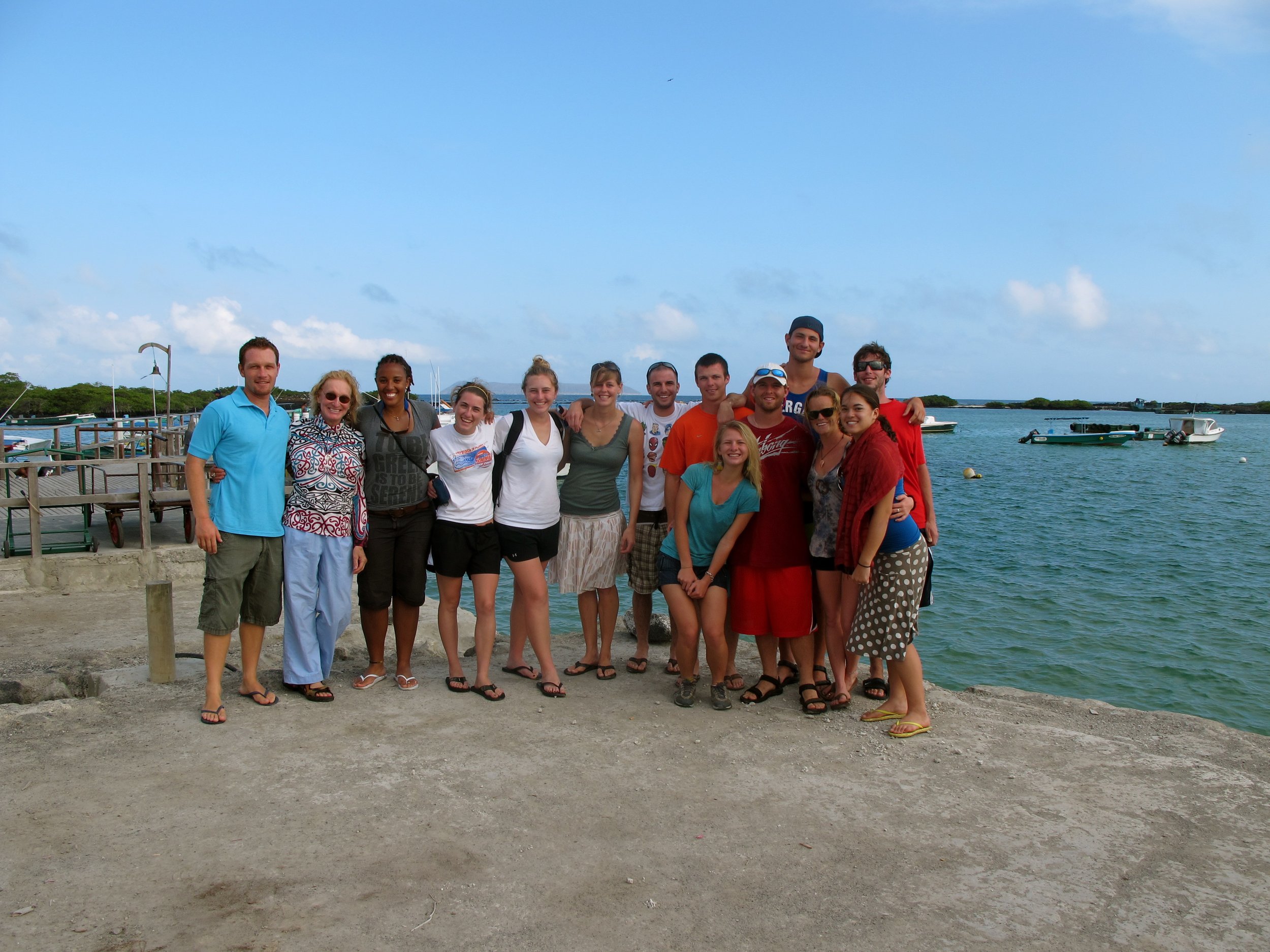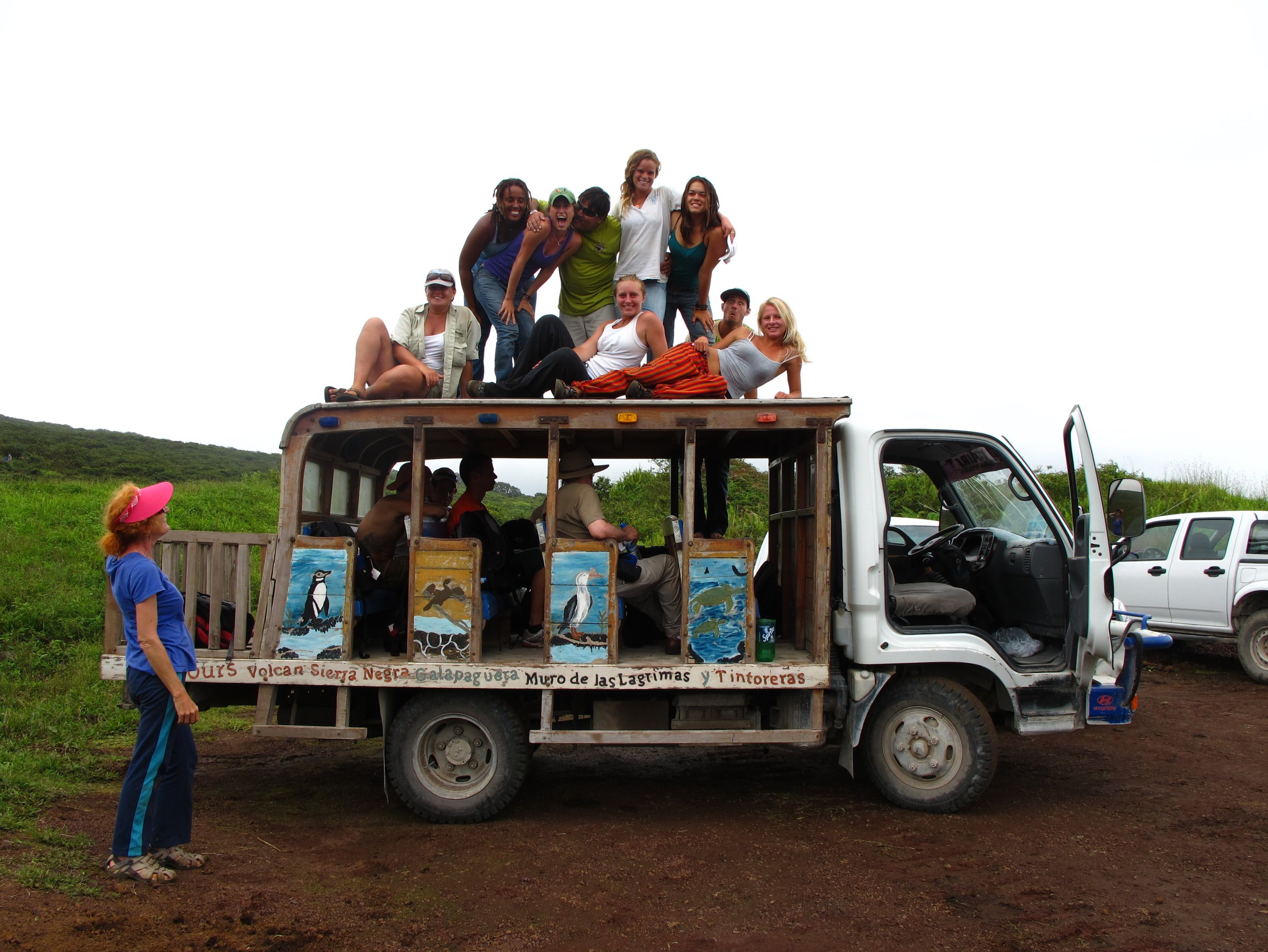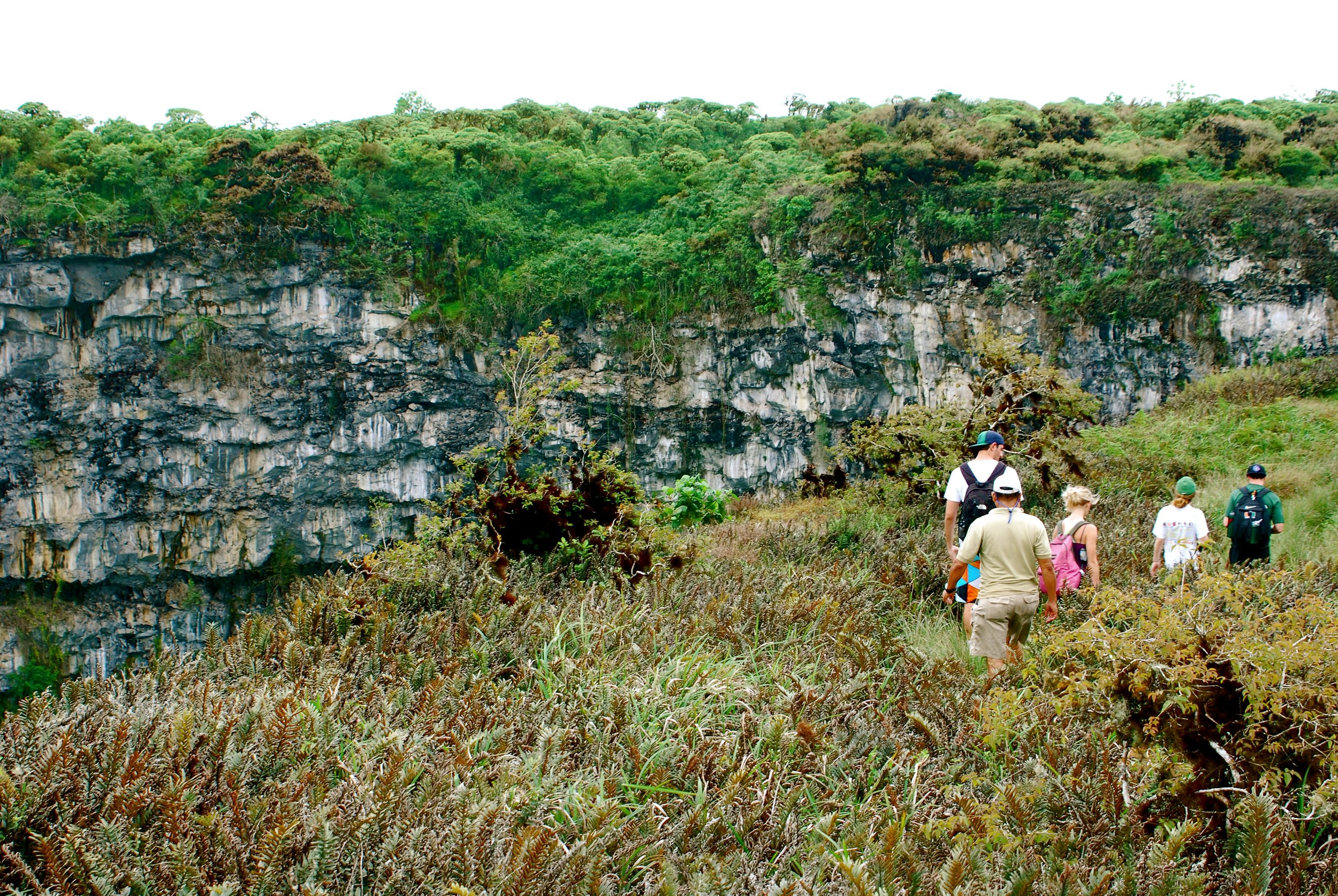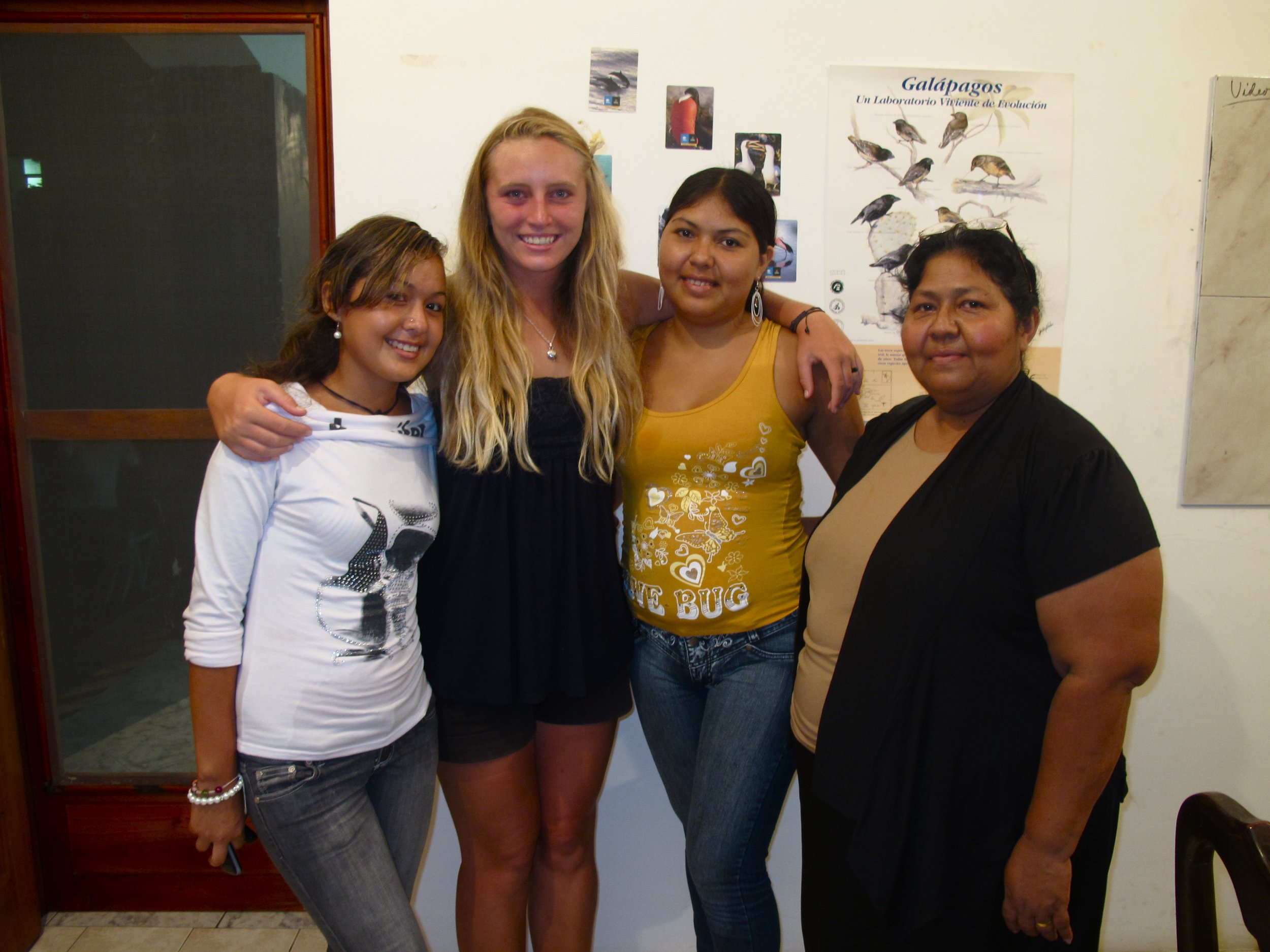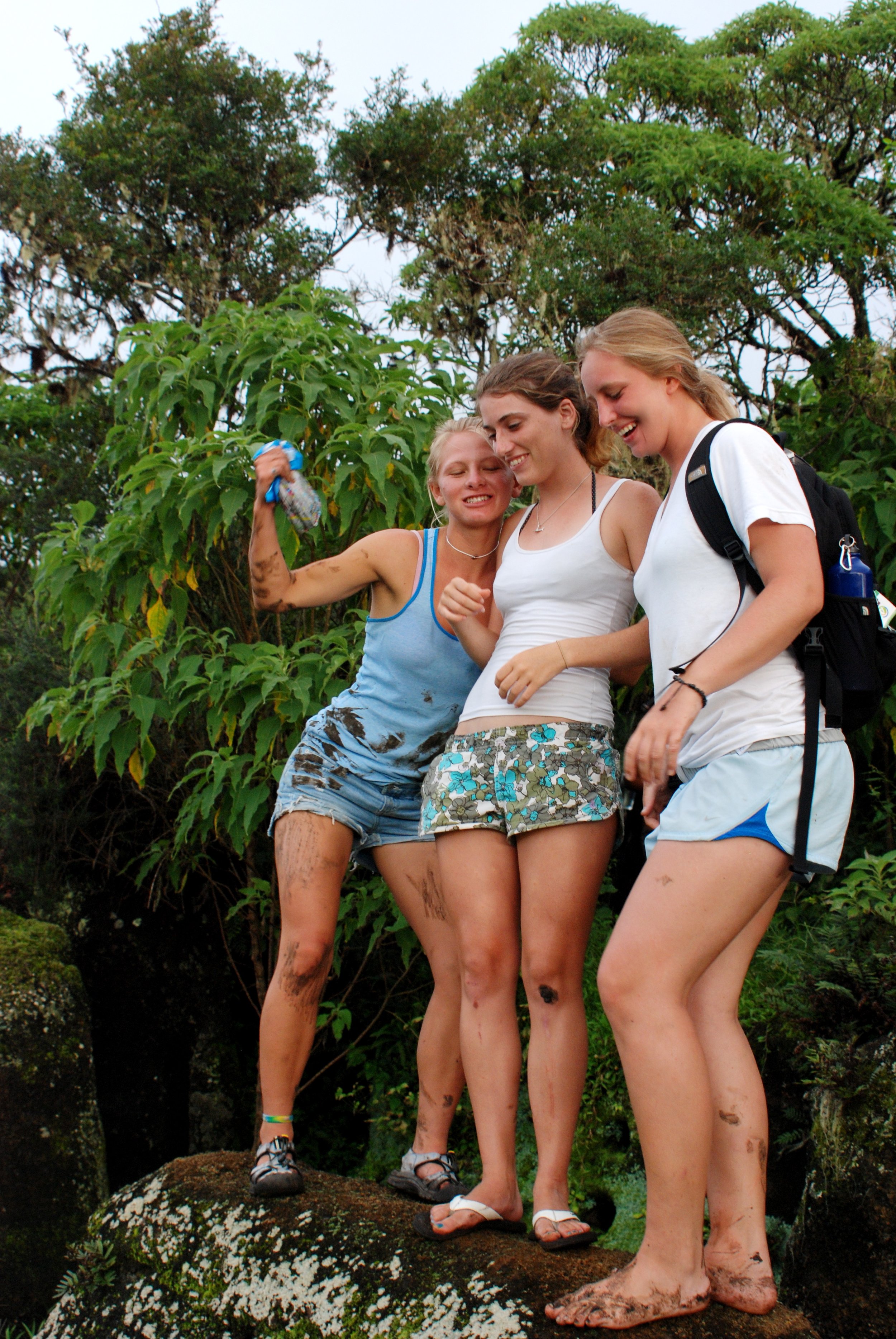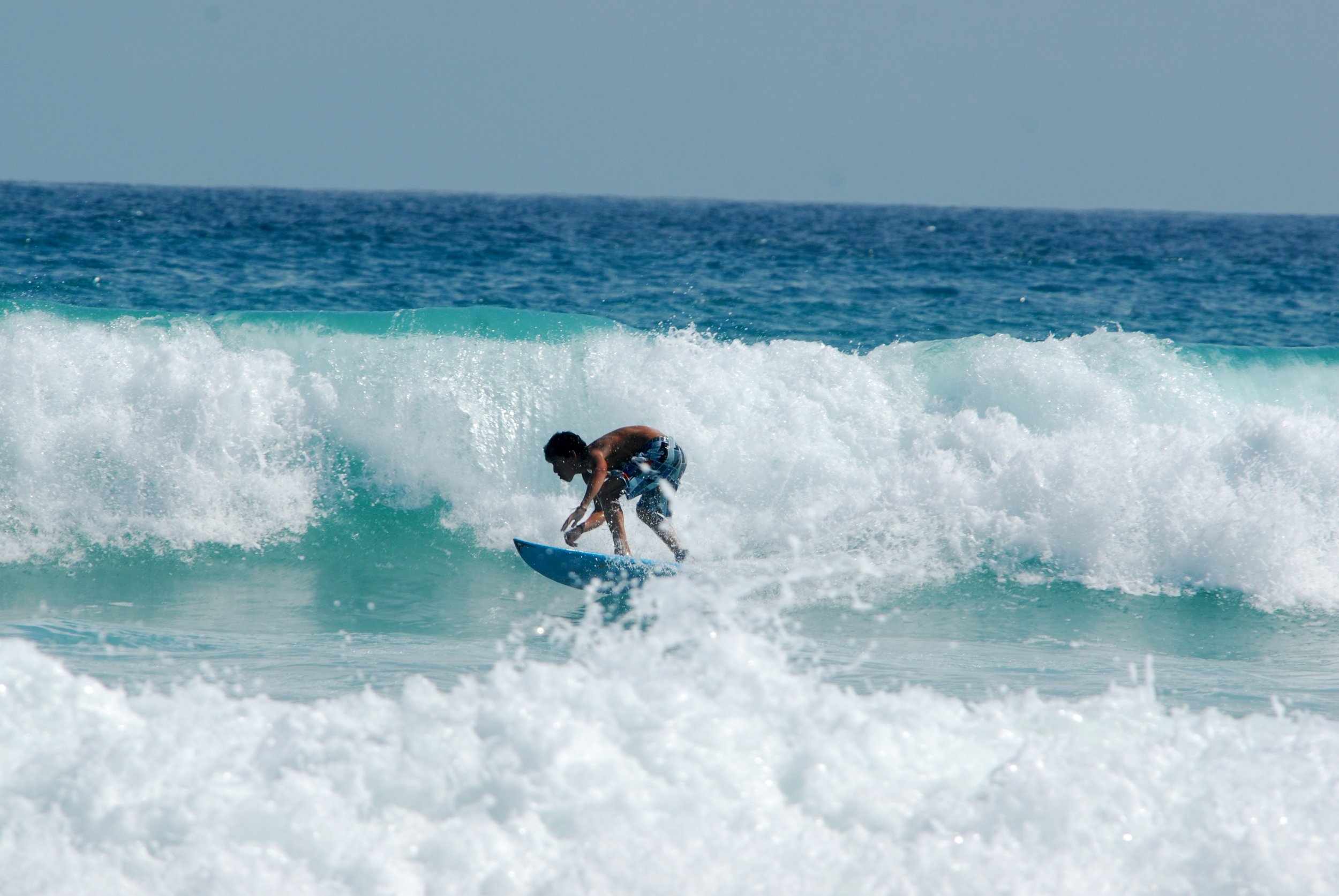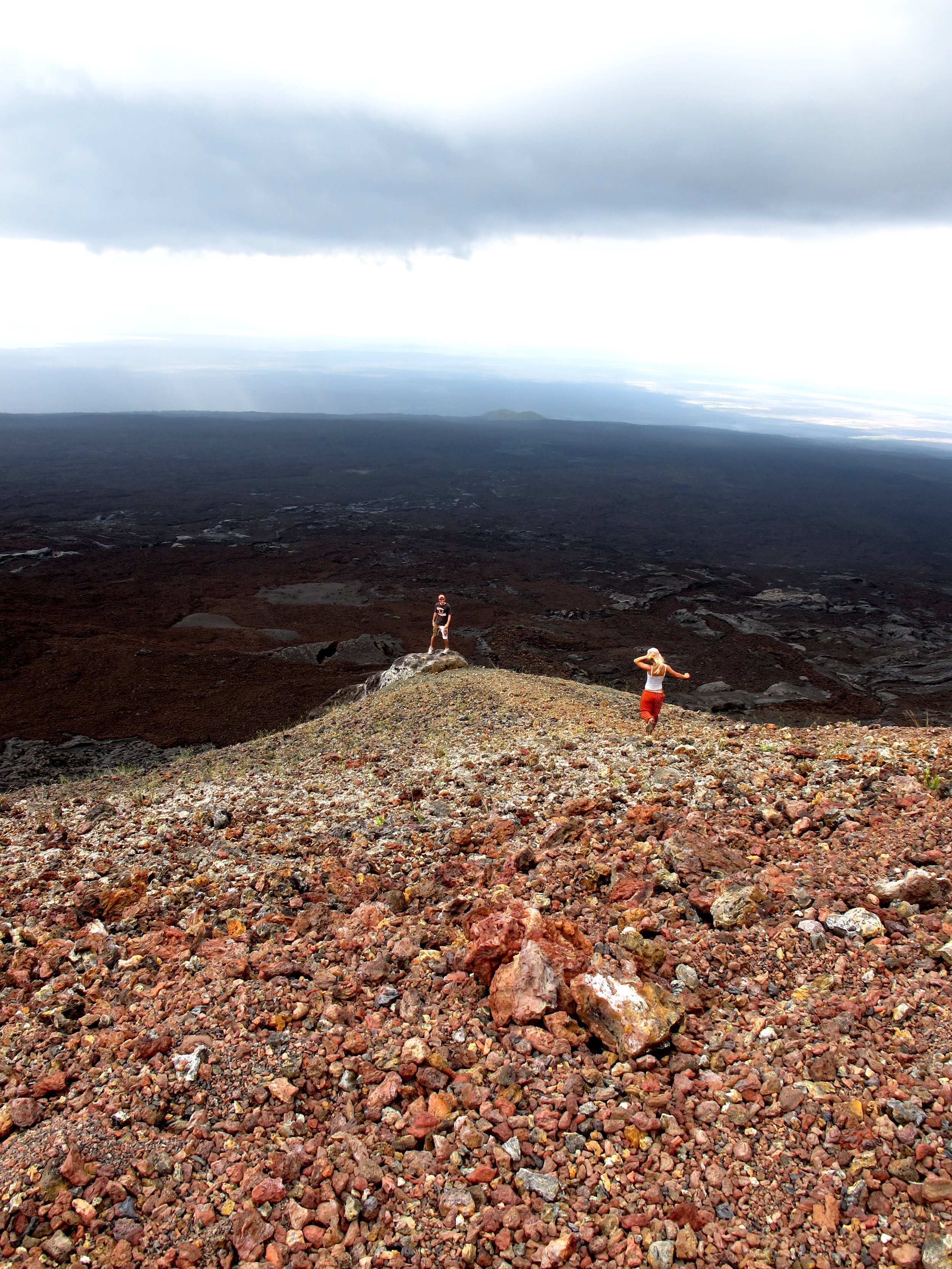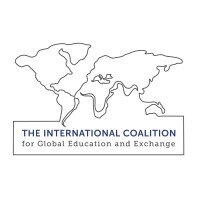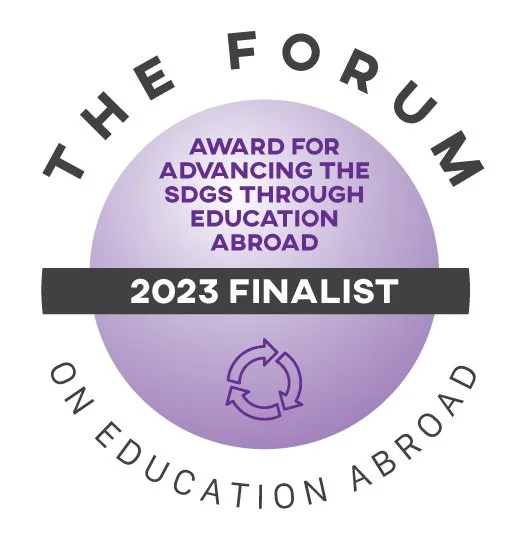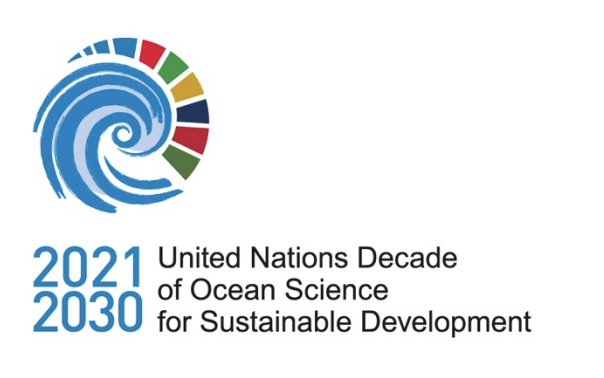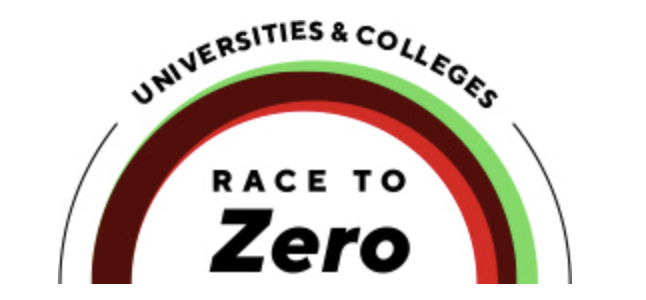5 Tips On How to Prepare for Your Volunteer Trip
Remembering Isabela Twelve Years Later
On January 23, 2010, myself and ten other University of Miami students stepped foot onto Isla Isabela in the Galapagos for the first time, greeted by our fearless leader Johann. At the time, IOI stood for Isabela Oceanographic Institute and up until that point had been the Galapagos base for academic research and summer course sessions through the university. But our arrival marked the first time a group of American students would spend a full semester on the island of Isabela. Yes, you read that correctly: myself and my fellow classmates were the guinea pigs for this type of study abroad program. Our professors (and Johann I’m afraid) had no idea what we had in store for them. While we thought we were the ones shaking up the island, all 11 of us left the island three months later knowing that the experience we had lived was a privilege not many others get.
“On January 23, 2010, myself and ten other University of Miami students stepped foot onto Isla Isabela in the Galapagos for the first time”
We were asked to keep journals by our anthropology professor and prior to this writing, I read through mine and was struck first and foremost by just how young we all were—but I guess that’s to be expected. But then what I noticed again and again was tiny glimpses of a younger, more frivolous Katie giving way to strong, more mature, self-determining Katie. If I was searching for the place where my mind and my actions began to diverge from the path ahead of me, I think I would find it while walking home barefoot through the sandy streets after a long night of dancing salsa during Carnival. Being separated from everything we knew and suddenly presented with a different life entirely, one highlighted by convincing our teachers to re-arrange our lecture schedules so that the daily surf practice wouldn’t be disrupted; by realizing how much money you’re going to save on makeup and bras because you just don’t need them if you never leave the ocean; by learning Spanish overnight so that you can finally talk to your crush alone.
I would be remiss if I did not speak on the fact that we were provided the opportunity to experience some truly incredible moments. I will never forget swimming as fast as I could possibly could for as long as my lungs would let me just to get one more glimpse of that one manta ray or riding to the top of a volcano on horseback and camping overnight or deep-sea fishing and watching Sarah attempt to fight a clever and mischievous sea lion to keep her catch. I would also be misrepresenting my fellow travelers if I said we didn’t care about our actual coursework and while I am proud of the things we learned (I to this day remember more about damselfish that your average marine science major) in class, I am even prouder of the things we learned from the island and its people directly. Ultimately, we lived life differently for three months…and we loved it. We learned empathy for a place and for a society smaller, less connected, and further removed than most places we had ever been before. We made friends with the surfers and with the woman who got us ice cream cake for lunch. We grew close to our homestays families and called them our moms and dads, our sisters and brothers. Some of us fell in love. At the end of the semester, we held a boys versus girls island-wide scavenger hunt (the girls won). And on the morning we left, most of us cried.
When I started writing this entry, the pandemic was not on anyone’s radar. I wanted to write it in honor of the ten-year anniversary of an experience not one of us—Kat, Ryan, Petter, Aaron, Alex, Nikita, Chris, Judy, Sarah, Evan, nor myself—has forgotten. But nearly two years has gone by since COVID became a household name and I spent most of that time stressing about how to write an easy, breezy review of our semester spent living on Isabela. How do I wax poetic about my youth spent on an island while the human toll of a globally spreading virus grows every day? How do I balance the importance of highlighting my time in the Galapagos without shoveling saccharin nostalgia down everyone’s throats in the middle of a crisis? At the very least, surely by the now the curriculum has changed and adapted, how would my memories from a decade ago accurately portray the present and future of IOI?
It is now January of 2022 and what I have come to accept is that I have no idea what the world is going to be like going forward and neither does anyone else. I can’t make people feel better about studying abroad in a pandemic. We may not be able to cross borders or travel freely the way we once did but we can all stay curious, compassionate, healthy, and kind. I studied abroad with the expectation that I would, well, study abroad. But instead I was offered knowledge and wisdom in the form of someone else’s culture and the beauty and the weight of that is what I hold closest to me when I think back about our time on Isabela.
Insetting vs. Offsetting Greenhouse Gas Emissions
It's no doubt that studying abroad is a fantastic opportunity for cultural immersion and to learn new skills in a new location while making new friends. But we now know the detrimental effects our travel has on the planet so as conscientious travelers, what can we do about it so that we can continue to learn abroad without contributing or at least, drastically lessening, our travel's negative impact on the planet?
"2020 and 2021 have seen an increase in climate change-related disasters; climate change is real, is here, and it affects all communities, affluent and low-income alike."
IOI's Director of Operations and International Partnerships, Daniel Ponce Taylor, explores this question in his recent blog for Gap Year Association.
"Students that participate in gap year programs can emit more CO2 than some of the communities in which they engage emit in an entire year. There is no way around the fact that our field activities emit a lot of carbon when traveling to remote locations. As an industry, we must do something about that!"
Read more about what he has to say about the topic here:
https://www.gapyearassociation.org/2021/10/26/insetting-vs-offsetting-greenhouse-gas-emissions/
CANIE Recognizes IOI as A Leader in International Education and Climate Change
At IOI, we are very excited to learn that CANIE, Climate Action Network for International Educators, recognizes us as leaders in International Education and as an organization working towards impactful climate change. Our Director of Operations and International Partnerships, Daniel Ponce Taylor, will be joining a select few in the Leaders Forum at the upcoming COP26 Climate Action in International Education Week in November.
Daniel, along with other key leaders and influencers in international education and in sustainability in higher education, will be working together to, as described by CANIE, "develop and strengthen our sector’s response to the global challenge of climate change."
You may have noticed that this event coincides with the UN COP26 Climate Talks in Glasgow. This is intentional, making for a more powerful message, "to be a call to action; an opportunity to advance an ambitious, shared climate action agenda for the field of international education."
We look forward to hearing more about the discussions and are excited to continue to work towards a more sustainable future alongside these great organizations and other key players.
Regenerative Agriculture Study Abroad
IOI's Strategic Partnership Advisor, Daniel Ponce Taylor, ponders what "regeneration" means today, as we slowly move forward with a new version of "normal."
At IOI, one way that we're "regenerating study abroad" is by using our regenerative agriculture project to not only teach students about its techniques and benefits but to also counterbalance the impact that study abroad travel has on the planet.
Ready to join the regenerative revolution?
Check out the article to learn more.
Dear IOI Community
DEAR IOI COMMUNITY
It is the season to be grateful. Starting with Germany’s Erntedankfest on the first Sunday in October, versions of the same, mostly secular holiday are celebrated from Canada (on the second Monday of October), to Liberia (on the first Thursday in November), to Japan (on November 23), to Thanksgiving Day in the US and Brazil on the last Thursday in November.
While large family gatherings—the modern-day interpretation of this celebration—might be difficult during the Covid pandemic, the season gives us an opportunity to focus on the origins of this festival—being thankful for the year’s harvest. It is an important reminder that we should not take our food and land for granted. The UN’s Food and Agriculture Organization has warned that soils around the world are heading for depletion at a rate of 30 football fields a minute, with only an estimated 60(!) harvests left before our lands are too barren to feed the planet.
IOI has been leading regenerative agriculture programs for many years. While these programs increase the nutritional value of the local diet, bolster the local economy, and increase food sovereignty in remote locations, they are also part of IOI’s larger strategy to become a carbon negative organization, contributing to our overall mission to promote the implementation of the UN Sustainable Development Goals.
Concretely, IOI’s regenerative agriculture programs lower the local carbon footprint of food imports by 51 grams of carbon emissions per kilogram of food produced. In addition to lower rates of fertilizer and pesticide/herbicide use, our cattle breeding program helps to protect local soils. When pastures are managed responsibly, ruminants are an integral part of soil conservation and regeneration.
More on that in upcoming newsletters! For now, let’s be thankful for what we harvested this year (or for 2020 being almost over) and look forward to a new year with new politics, new vaccine and treatment options, and a re-opened IOI—all of which are looking very much in reach right now.
Dear IOI Community
DEAR IOI COMMUNITY
As we enter the last quarter of 2020, it feels like a corner might be turned soon on a more-than-tumultuous year. From political turmoil to civic unrest, from lack of life-work-balance to working at home, from stock market crash to record recoveries on Wall (but not Main) Street. And all that before the backdrop of a Q4 that might yet pack the biggest punch, with US elections upcoming and societies moving life indoors as winter approaches in the northern hemisphere.
IOI has undergone a similar roller-coaster ride. On the coat-tails of last year's shift to align our programs with the UN Sustainable Development Goals (SDGs), we started the year by implementing our industry-leading 2022 Carbon Negative Initiative. Then came Covid, along with evacuations just ahead of border closures and ever-extending program shut-downs for the rest of 2020. I'll spare you the gory details, but we had to cut both our budget and our fixed cost by over two thirds. Such radical cuts are painful of course, mainly with regards to staffing. At one point we were a team of 14—currently, we are down to a single full-time employee holding down the fort in Galapagos.
But, we also found opportunity and made important progress. While society at large has found new vigor in opposing the world's injustices, IOI's community came together to help us survive, continue with innovation, and keep our spirits up during this time of crisis. Our relentless staff (now working part-time or volunteering) has been putting in countless hours of their time to continue fulfilling our commitments on the ground, as well as our program development. The government in Ecuador realized the importance of food sovereignty in the Galapagos, and IOI’s sustainable agriculture program got a long-awaited, major boost through their support. Our cost-cutting demanded a move to new facilities, which has left us in beautiful, new, and expanded installations in an even better location. We updated our health and safety protocols to state-of-the-art standards, including bubble approaches and frequent testing. Last, but not least, in the face of continued travel restrictions (SPOILER ALERT) we are developing new online programs that will be launched in November, which can stand as individual programs or serve as enhancements to our existing programming after opening our doors again in January.
Dear IOI Community
DEAR IOI COMMUNITY
2020 has been a challenging year, particularly for the travel industry. After a somewhat desperate summer—and with your help—IOI has now secured funding to remain alive for the rest of the year, despite all study abroad and volunteering programs being closed until 2021.
Times of change are always a good moment to step back and reflect upon the former status quo. As I am writing this letter, the dire need for action on climate change is more urgent than ever. California is experiencing its worst fires on record while the Gulf Coast is battered by a record seventh named storm to make landfall in the US before the end of August (previous record was six in 1916). Both events are directly related to climate change.
While IOI is of course a sustainable development NGO, most of our funding comes from educational travel in study abroad and volunteering. How do sustainable development and carbon-emissions-heavy funding combine, you ask? So have we, and IOI is striving to be part of the solution to climate change, perhaps the biggest challenge of our time. In anticipation of reopening in 2021, IOI is moving forward with its Carbon Negative 2022 Initiative, leading by example in a traditionally emissions-heavy industry.
It is inspirational to see that more and more large organizations are also picking up some of the sustainable practices that IOI has been promoting. Sustainability leaders in their traditionally carbon-emissions-heavy industries, Patagonia and White Oak Pastures have made impressive progress in the cotton/apparel and meat production industries, respectively.
As you will read below, despite heavy cutbacks, our local projects and our initiatives to promote sustainable agriculture and biodiversity protection are being pushed forward as our remaining staff maintains our project work. Stay tuned for the launch of an exciting online education campaign that combines our field experiences with pre-arrival courses and internships.
Keep up the positive spirit—we’ll get through this together.
Dear IOI Community
In honor of the United Nations' International Day of Friendship, I would like to thank our friends for their support, in the name of the entire ioi community. I am very grateful for how our community has been coming together over the past 3 months to help ioi survive.
In May, we raised $11,000 dollars in our COVID Relief Fundraiser with your help. With these funds, we were able to continue our support for our ongoing programs as well as expand our assistance in food sovereignty for the Galapagos and help in the disaster relief efforts in Isabela. In June, you reminded us to help larger issues and to stand united with other causes, not only in Galapagos where our local communities adapt to new realities, but beyond. I have been impressed by the rise in social justice issues coming to the fore, in court and in the streets, and your overwhelming support for it. In July, you helped us by donating your possessions to our first online auction and by bidding on items, which aided us in getting through the pandemic related shutdowns.
First and foremost, however, I have been impressed by our staff. As I have mentioned in past newsletters, ioi's staff have been more than their usual impressive in 2020. They have taken all changes in stride, in an ever more dynamic environment. They have switched their fields of involvement from logistics to medical assistance and from environmental management to PPE-making without complaint and as a matter of course to help with whatever was needed in whatever situation.
As such, I want to especially thank Felipe Andrade and Kathryn Metzker, both of whom will be leaving ioi in August.
Felipe came to IOI 5 years ago as a facilities manager and logistical assistant. Felipe has always gone above and beyond any and all job descriptions and expectations—be it as a dance instructor, a sustainable chef in our community programs, a research assistant, or a budgeting advisor (he has an accounting background). Felipe is a jack of all trades that will be missed in ways we can not even foresee yet.
As our newest staff member, Kathryn has already been with IOI over 2.5 years. She came, she saw, and she conquered our sustainability programs. With a master's in human geography and loads of knowledge in urban and sustainable agriculture, she made happen our sustainable agriculture program in no time, and took it to unimaginable heights. We'd had plans to start a model garden and get Galapagos to be food sovereign for many years, but it would not have been possible without Kathryn's drive, knowledge, and womanpower. The results of her work are helping Isabela through shortages during the pandemic and will have a lasting impact on the food system in Galapagos.
I know they have touched the lives of many of our participants, and it is with the saddest of hearts that we see them go. We hope to be able to work with them again in the future.
Disaster Relief Efforts in Galapagos
With our study abroad programs cancelled, we are struggling to stay in business and depend on you more than ever. We are so grateful to those who have donated, spread the word, and participated in our fundraising efforts. A big thanks to UM alumni Carley Belanger and Sam Waddell for getting our first fundraiser started in May!
With your financial support, we have been able to donate basic 'food kits' to the families of the Galapagos initiative "Sustainable Isabela". These food kits, with staples like oil, rice, and lentils, are used by families in addition to the produce from their gardens.
In addition to providing 'food kits' for our families, we have also put together agricultural kits. These kits were donated to farmers in our sustainable agriculture program guarantee continuous local production and quality of local produce. The resulting produce is commercialized at the local outdoor food market in a continuous effort to ensure food security on the island.
This project is carried out in agreement with the Governing Council and the technical assistance of the Ministry of Agriculture.


